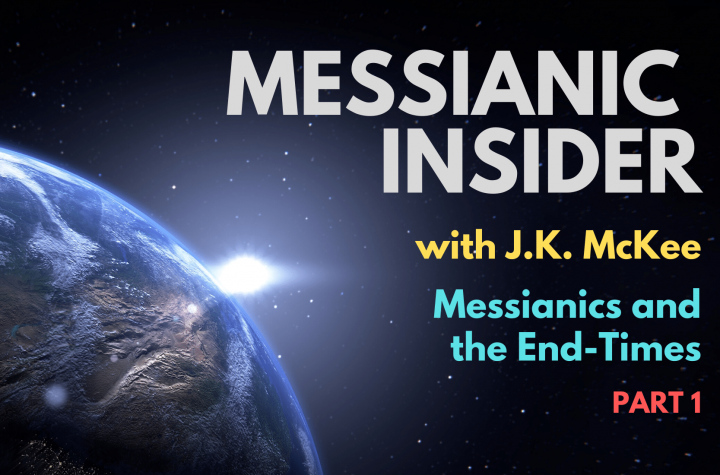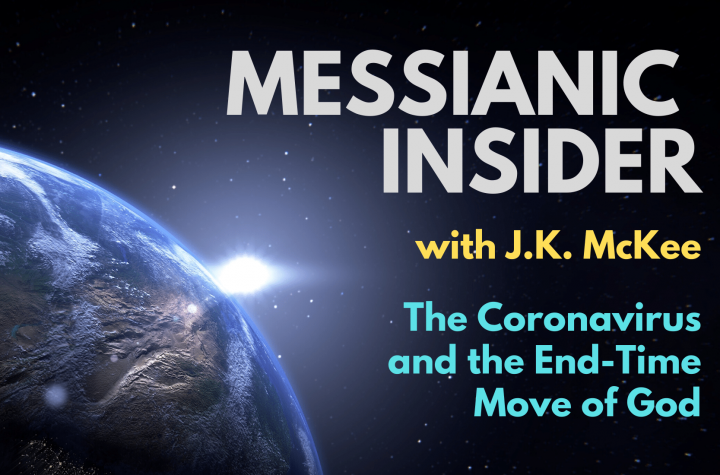J.K. McKee of Messianic Apologetics talks about the study of end-time prophecy, as may be witnessed within today’s Messianic movement.
J.K. McKee
J.K. McKee of Messianic Apologetics talks about some of his experience in dealing with prophecy over the years.
J.K. McKee of Messianic Apologetics talks about whether or not today’s Messianic community really has the ability to communicate to those of the Millennial generation.
J.K. McKee of Messianic Apologetics talks about the present impact of the coronavirus, and its necessary impact on today’s Messianic movement as the “end-time move of God.”
a very reasonable approach, to a very controversial topic




